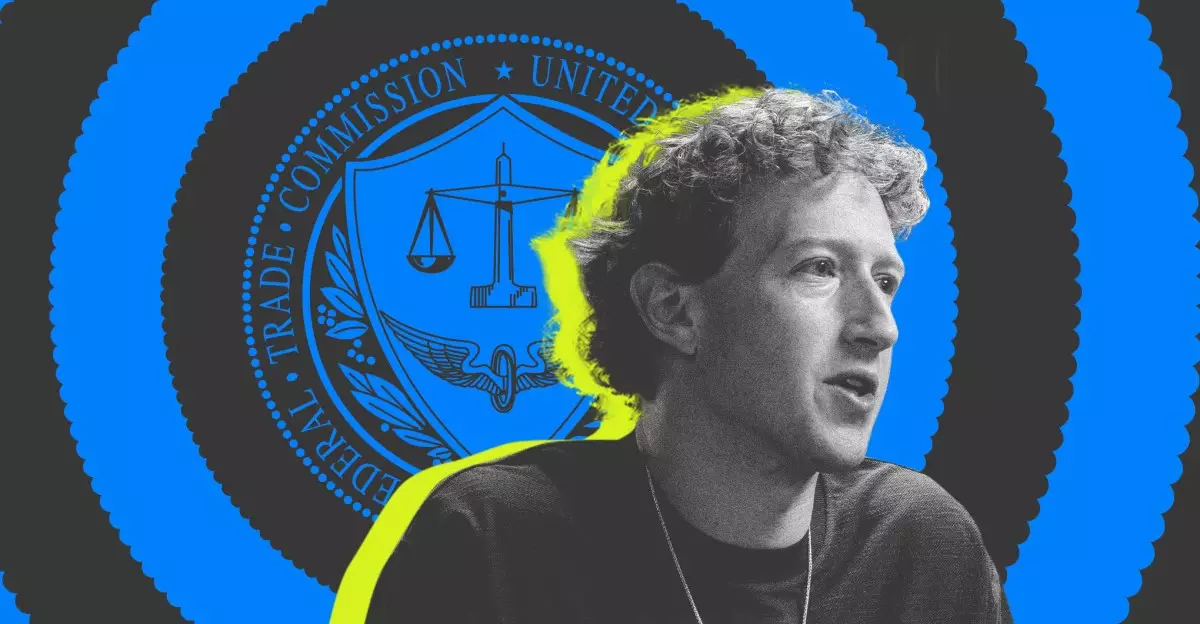The journey of Meta, previously known as Facebook, is one riddled with critical decisions that have shaped the landscape of social media as we know it today. As evidenced by recent legal proceedings, CEO Mark Zuckerberg has reflected on numerous alternative paths the company could have taken during its formative years. The implications of these decisions not only influenced Meta’s trajectory but have also stirred ongoing discussions about monopolistic practices in the tech industry. This analysis delves into the forked paths of Meta’s evolution and the broader implications for digital society.
Zuckerberg’s Reflections Under Fire
Zuckerberg’s testimony in a federal courtroom, amid an antitrust case brought by the Federal Trade Commission (FTC), served as a compelling retrospective on the company’s tactics in acquiring potential rivals. Under scrutiny for its acquisitions of Instagram and WhatsApp, Zuckerberg expressed insights that are both revealing and troubling. The FTC posits that these acquisitions were strategic moves to eliminate burgeoning competition, but they also prompt deeper questions about the ethics of such market consolidation. Did these strategic choices stifle innovation, or did they ensure the stability of a fragmented and rapidly evolving digital communication space?
During nearly nine hours of testimony, Zuckerberg demonstrated an interesting paradox; while he acknowledged the competitive landscape as “fluid,” he also seemed to subtly resist recognizing Meta’s dominance in the “personal social networking services” market—a term carefully crafted by the FTC to encapsulate networks that prioritize personal connections. He defended his view of competition by highlighting the presence of platforms such as TikTok, YouTube, and iMessage, yet the essence of what constitutes competitive advantage remains ambiguous in this rapidly shifting environment.
Imagining Alternate Realities
The courtroom drama also unearthed the reality of what could have been. For instance, if Snapchat’s co-founder Evan Spiegel had accepted Zuckerberg’s $6 billion offer back in 2013, the social media landscape might look significantly different today. This notion invites a host of speculative reflections: would we have seen a more diversified array of social services, or would Meta simply have absorbed yet another potential rival, converting it into an empire of bland uniformity?
Moreover, Zuckerberg’s musings about “resetting” Facebook by eliminating friends lists reveal a deeper philosophical engagement with user experience. While this whimsical idea seems to be a fleeting thought, it hints at a very real tension within large social platforms—the balance between user autonomy and company-driven design. The pursuit of engagement metrics can lead to a reliance on past structures that may not serve the evolving needs of users, ultimately stifling creativity and spontaneity.
Market Manipulation or Strategic Acumen?
As Meta defends itself against allegations of monopolistic behavior, the discussion around its advertising strategies sheds light on the complexities of modern marketing. The FTC suggests that Meta’s increased ad load is a direct result of a lack of competition; without viable alternatives, users are left with little choice but to accept a sea of advertisements disguised as content. This stirring concept raises questions about the ethical implications of monopolies in digital spaces. Does a monopoly inherently stifle innovation, or does it inadvertently push for new forms of creativity within an otherwise constrained market?
Zuckerberg’s candid conversations with his team reveal a fear that the company was lagging behind its competition, prompting a series of aggressive acquires. Internally documented fears showcased a genuine concern for the waning relevance of the platform—a troubling acknowledgment that may rattle the foundations upon which Meta was built. How do these dynamics reflect on leadership in the tech sector? The balance between risk and reward is a weighty one for leaders like Zuckerberg, whose choices reverberate far beyond his company.
The Future of Social Networking in a Fragmented World
As the legal battle unfolds, Meta’s situation is emblematic of broader trends in the tech industry. The rise of alternative platforms reflects a growing discontent with conventional social media giants and the increasingly monopolistic structures they uphold. Users are craving diversity, authenticity, and ethical engagement, which in turn places pressure on companies to adapt. As Zuckerberg navigates these challenges, both in and out of court, the question remains: can an industry accustomed to monopolistic strategies effectively pivot towards fostering genuine competition and innovation?
The reality is stark: Meta’s past decisions may have cemented its current stature, but they also necessitate a rethinking of the future. In a digital world that’s rapidly evolving, the stakes are high. The decisions made today will shape not just Meta, but the very fabric of how we connect and communicate in the years to come. As Zuckerberg continues to testify, the implications of his reflections extend beyond the courtroom, inviting us all to consider what the future of social media will look like in a world dominated by giants.

